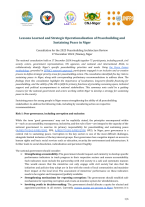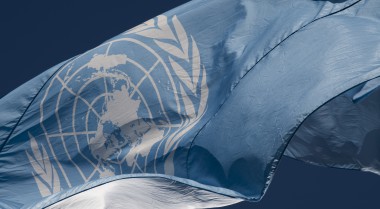
Lessons Learned and Strategic Operationalisation of Peacebuilding and Sustaining Peace in Niger
The national consultation held on 17 December 2024 brought together 71 participants, including youth, civil society actors, government representatives, UN agencies, and national and international NGOs, to collaboratively identify Niger's specific peacebuilding priorities and needs.
Using the Peace Games methodology, grounded in GPPAC’s network approach, participants engaged in an inclusive and co-creative process to define strategic priority areas for peacebuilding action. The consultation identified five key risks to sustaining peace in Niger, along with corresponding preliminary recommendations to address them. The findings from this consultation highlight the importance of localisation, long-term flexible financing for peacebuilding, and the ability of the UN to fulfil its primary functions of providing convening space, technical support and political accompaniment to national stakeholders. This summary note could be a guiding resource for the national government and actors working within Niger to develop a strategy for sustaining peace in the country.
Sustaining peace for young people in Niger means strengthening the ability of all peacebuilding stakeholders to address the following risks:
Poor governance, including corruption and exclusion
Insecurity, including armed conflicts, terrorism, and kidnapping
Impacts of Climate Change, including pollution, deforestation, and wildfires
Poverty and unemployment
Weakened civil society
>> Cliquez ici pour lire la note de synthèse en français


